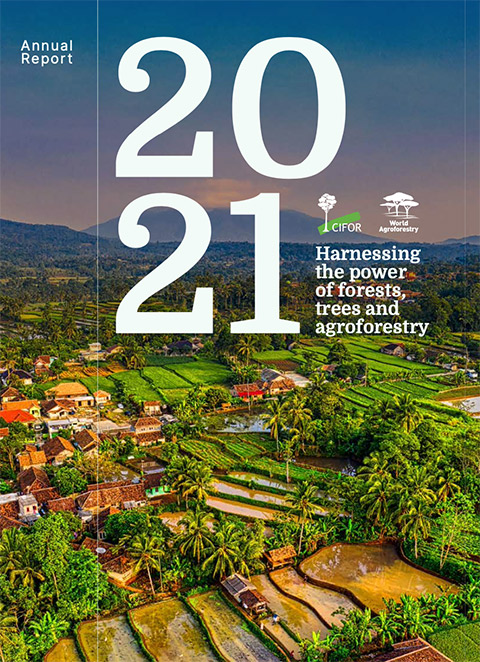The Yangambi Engagement Landscape in the Democratic Republic of the Congo is an example of what you can achieve when you spend enough time in one place, getting to the crux of the issues affecting people and their environment. In fact, CIFOR-ICRAF’s ‘engagement landscapes’ concept was sparked by the impacts achieved through nearly 15 years of work with institutions and communities near the Kisangani–Yangambi urban–rural complex, co-creating solutions to forest degradation and poverty.
Over 2 million trees have been planted since 2019, restoring over 2,300 hectares of land and creating over 3,400 seasonal and direct jobs. In a few years, the trees will be ready for use as biomass in a combined heat and power plant, now under construction.
More than 220 masters and doctoral researchers have been trained through a 15-year collaboration with the University of Kisangani (UNIKIS) and 11% of these are women. Infrastructure upgrades to UNIKIS include about 5,500 square metres of state-of-the-art low-carbon buildings.
Sustainable livelihood efforts are focusing on development of small-to-medium enterprises (supporting 1,017 people, of whom 706 are women), sustainable charcoal (with 106 charcoal makers trained and 19 community nurseries established), fish farming (with over 5 tons already produced in cooperative fish farms), and agroforestry using fruit trees mixed with improved cassava, corn and peanut crops. Performance-based schemes are boosting entrepreneurship for women and men.
The Congo Basin’s first eddy covariance-flux tower now rises 55 m above the Biosphere Reserve, assessing the forest’s potential to mitigate climate change through carbon capture.
To curb the devastating impact of urban wildmeat consumption on forest biodiversity, an innovative campaign uses comic-strip-style posters and community theatre to change people’s perception around selling and consuming wildmeat.
Finally, environmental education and outreach activities include a photo exhibit depicting the region’s history, music videos, over 3,250 primary- and secondary-school students participating in periodic workshops, and an animated film.
Supported by European Union, Belgium, USAID
“Engagement landscapes require daily trade-offs between wealthier people and healthier forests: ‘best’ solutions exist, but they demand proximity and long-term embeddedness in the local environment.”
Paolo Cerutti
Senior Scientist and Interim Hub Leader, Nairobi

